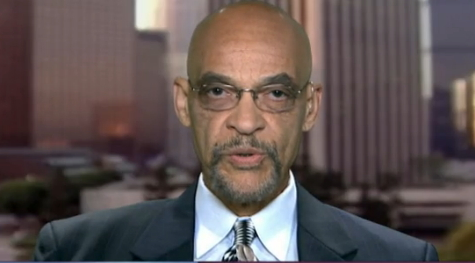Earl Ofari Hutchinson
Two things happened the same day that may tell much about where Blacks, Democratic presidential contender Pete Buttigieg and the Democratic party are headed against Trump. One is that Buttigieg rocket launched to at or near the pack of the heap with his virtual dead heat win in the Iowa Caucus. The other was a casual but head shaking remark by a close friend who is African-American She said that she liked many of Buttigieg’s positions on the issues but she had a big problem with a man standing next to him with a wedding ring on his hand as his wife. This was just a casual remark, and on the surface at least, might not mean much if Buttigieg is the eventual Democratic presidential nominee. But then again it could.
And Buttigieg knows it. His campaign will be DOA in South Carolina and other big Democratic vote primaries in the South and big Northern cities ultimately without significant Black voter support. He’s devised a far-reaching criminal Justice reform program, and a Black economic support program. He met with Black elected officials and activists, including Reverend Al Sharpton in Harlem, and gone to a couple of Black Churches. But that may not be enough to get past the one still very big and very troubling barrier that my friend hinted at. That’s the still frozen in time Black wariness, if not outright hostility, toward gays.
An authoritative Pew Research Center poll in May 2019 found that more Blacks were opposed to gay marriage than any other group. True, support for gay marriage and gay rights has jumped as it has with other groups in the past decade. But that uptick in support for gays was mainly among younger Blacks. These are the Blacks who are less likely to be in any church, practice any religion, and to vote than older Blacks.
Buttigieg bumped hard up against that high barrier in early polls in South Carolina. He got almost zero support among Blacks. Now, Mayor Pete as an openly gay man knows the sting of hatred when someone sees his wedding ring and that of his marital partner. And his poll numbers in South Carolina may not be a real sign that Blacks are so turned off by an openly candidate presidential candidate that they’ll shun him. However, the danger signs are bright.
There’s no doubt, though, that if it ever came to a head to head choice between Buttigieg and Trump, his being gay would fly out the window fast. The overwhelming majority of Blacks would unhesitatingly back him. That I’m certain includes my friend. And all major civil rights organizations have loudly denounced DOMA and all state initiatives that banned gay marriage. They drew direct parallels between the denial of gay rights and Black rights. They remind that homophobia and racism are two sides of the same coin and that many of the same white conservatives, from Pat Buchanan to Jerry Falwell, who relentlessly savaged gays were the same ones who relentlessly savage civil rights gains.
But they don’t speak for the bulk of Black evangelicals who on social issues such as abortion and gay marriage are at odds if not opposites with the civil rights leaders.
It starts in the pulpit. Conservative black preachers have scripture saber rattled gay marriage for the past two decades. The first big warning sign that the gay marriage issue would inflame, polarize, and even energize blacks within and without the black pulpit came in 1997 when the Green Bay Packers perennial all-pro defensive end Reggie White, an ordained minister, touched off a firestorm of protest from gay groups with a rambling hour-long talk to the Wisconsin legislature in which he took a huge swipe at gay rights and gay marriage. He later barnstormed through several Midwestern cities pushing the anti-gay gospel at pro-family rallies.
Before his untimely death in 2005, White apologized for his anti-gay remarks, but he was unrepentant in his view about homosexuality. He was a conservative Black minister and homosexuality still violated his biblical conception of the proper roles for men and women.
The other belief is that gay marriage poses another dire threat to the shaky stability of the Black family. Countless ministers and other blacks rail that far too many Black children are already in single parent homes, and the malignancy of crime, violence, educational dysfunctionality, and poverty that the absence of a two parent — man and woman — household supposedly can be attributed to the fractured black family. Gay marriage, in this view, would impose a gender identity crisis and further division among black men and women. This notion has been totally debunked in countless studies, surveys, and interviews. But for the gay marriage opponents, belief, the more mistaken the worse, will always obliterate facts.
Trump knows that. He has made feints hear and there at courting Black voters. And always at or near his side when he does is a coterie of Black ministers. They’ll be there again during the campaign. If Buttigieg is the nominee, the numbers of them by his side may swell. This is yet one more big and troubling problem for Buttigieg and the Democrats.
Earl Ofari Hutchinson is an author and political analyst. He is the author of the forthcoming What’s Right and Wrong with the Electoral College. He is a weekly co-host of the Al Sharpton Show on Radio One. He is the host of the weekly Hutchinson Report on KPFK 90.7 FM Los Angeles and the Pacifica Network.

